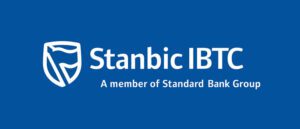
Inflation rate to maintain uptrend over cost-push factors — Analysts
By Kayode Tokede
A group of analyst at Investment One research have said inflation rate is expected to maintain its uptrend as the cost-push factors remain.
The National Bureau of Statistics (NBS) had disclosed that Nigeria’s inflation rate hit 15.75per cent in December 2020, highest in three years.
The Lagos based firm in its “Light and Tunnel” report on Tuesday said, “Going forward, we expect Consumer Price Index to maintain its uptrend as the cost push factors remain.
“Nonetheless, we expect a slower pace of increase on the back of high base effect towards the end of the year.
“We expect the pace of increase to remain high at the beginning of the year before slowing down towards the end of the year on due to high base effect.
“In the same vein, we expect to see some positive impacts of the recent re-opening of borders on food supply and the commencement of trading phase under the African Continental Free Trade Area (AfCFTA).”
According to the firm, “We are starting to see the light at the end of the tunnel with the arrival of COVID-19 vaccines at the end of 2020, which was a very tense and volatile year for most countries around the world.
“However, virus case counts are rising in some parts of the world (especially Europe) and this may dent recovery pace in the global economy as restrictions measures are likely to be maintained in hotspots. This may cause uneven recovery pattern across different regions in the world.”
The company stated that Nigerian economy slid into a second recession in five years as the impact of the Coronavirus exacerbated the already weakened macroeconomic condition of the country.
“According to the last GDP report from the National Bureau of Statistics, the country recorded declines in both oil (8.73per cent of the GDP) and non-oil (91.27per cent of GDP) sectors which fell by 13.89 per cent and 2.51 per cent respectively in Q3 2020.
“We believe CBN’s drive to boost credit to the real sector and increased digital adoption could support growth in some key sectors. Essential nature of agricultural product could still be driving growth in the sector.
“While we expect recent opening of land borders and commencement of trading phase under AfCFTA to support local supply in the near term, we are of the view that COVID-related factors and high post-harvest loss may limit food supply in 2021.
“As such, we expect growth to remain weak in 2021 until the Federal Government, through its fiscal and structural policies, addresses some of the barriers to sustainable growth within the medium to long run. Nigerian economy should return to positive growth in Q2 2021 as Non-oil sectors rebounds due the low base effect. Overall, we expect the nation’s GDP to grow in 2020 by about 1.5 per cent with both IMF and the World Bank projecting 1.7 per cent and 1.1 per cent respectively for Nigeria.
“The FX market is likely to benefit from the recovery in oil price as this improves FX inflows, and consequently, bolster accretion in FX reserves. This, combined with the receipt of the $1.5billion World Bank loan, provides the CBN enough firepower to defend the currency in the near term.
“With the expansionary fiscal and monetary policy measures being in place, Brent crude on the rise, expectations of rapid production and distribution of vaccines, and the unlikelihood of another national lockdown, we expect to see moderately paced economic recovery.
“This, we believe, should bode well for companies listed on the Nigerian bourse and filter positively into investor sentiments. However, major challenges such as FX illiquidity, supply chain fractures and other pre-Covid challenges such as inflation and poor infrastructure could continue to shackle the performance of companies in 2021.”



